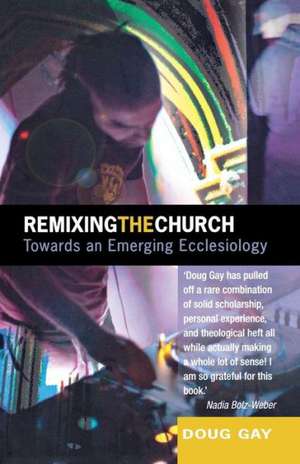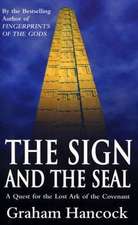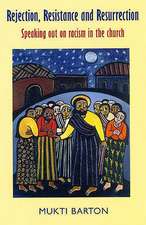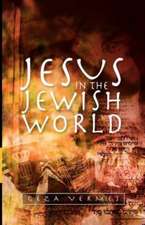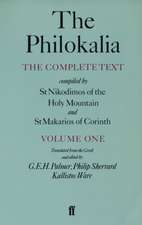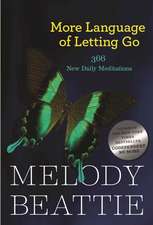Remixing the Church
Autor Doug Gayen Limba Engleză Paperback – 29 apr 2013
Preț: 187.65 lei
Nou
Puncte Express: 281
Preț estimativ în valută:
35.92€ • 36.95$ • 29.80£
35.92€ • 36.95$ • 29.80£
Carte disponibilă
Livrare economică 28 ianuarie-11 februarie
Preluare comenzi: 021 569.72.76
Specificații
ISBN-13: 9780334043966
ISBN-10: 0334043964
Pagini: 133
Dimensiuni: 132 x 213 x 10 mm
Greutate: 0.18 kg
Editura: SCM Press
ISBN-10: 0334043964
Pagini: 133
Dimensiuni: 132 x 213 x 10 mm
Greutate: 0.18 kg
Editura: SCM Press
Recenzii
'A readable and accessible book, this is a welcome addition to the ongoing debate [around the Emerging Church] and a step towards understanding how emerging ecclesiology may take shape ... No doubt Gay's work will aid reflection of how an ecclesiology may be formed.' -- Simon Edwards, Wesley House, Cambridge 201209 There can be little doubt that church attendance is in decline and over the past two decades in the UK significant resources have been invested in attempts to reverse this steady loss of people and indeed morale. Strategies, experiments with the development of leadership and management, imaginative programs for young people, a streamlining and cutting away waste have all been part of the church that prefers to talk about Mission rather than Ministry. This is a creative, well-organized, sometimes dense, but always intellectually robust book from a practical theologian concerned with theological practice from within the church. The reader is reminded how the church rarely ever stands still and is often dynamic in its embrace of change. The metaphor of emergence is explored through five motifs of auditing, retrieval, and unbundling, supplementing and remixing. The framework here is shaped by the disciplines of liturgy, ecclesiology, mission, and congregational studies. Gay manages to write and reflect in an integrated way. There are two key strengths to this book. The first is the authors embedded experience of what is described as the emerging church. He is able to reflect on this experience skilfully and theologically. He draws upon the Christian tradition and in doing so offers honesty, integrity and some integration of theory and practice. This is a key strength absent in the other writings about the future direction of the Church. The book may have been more comprehensive if it had engaged with those who have critiqued the emerging church. Further discussion about the relationship between the UK and USA dimensions might have put some of the discussion into a wider social and cultural perspective. Gay has established himself as a practical theologian of some skill and tenacity. We should look forward to further emerging writing and reflection from his head and heart. -- James Woodward
